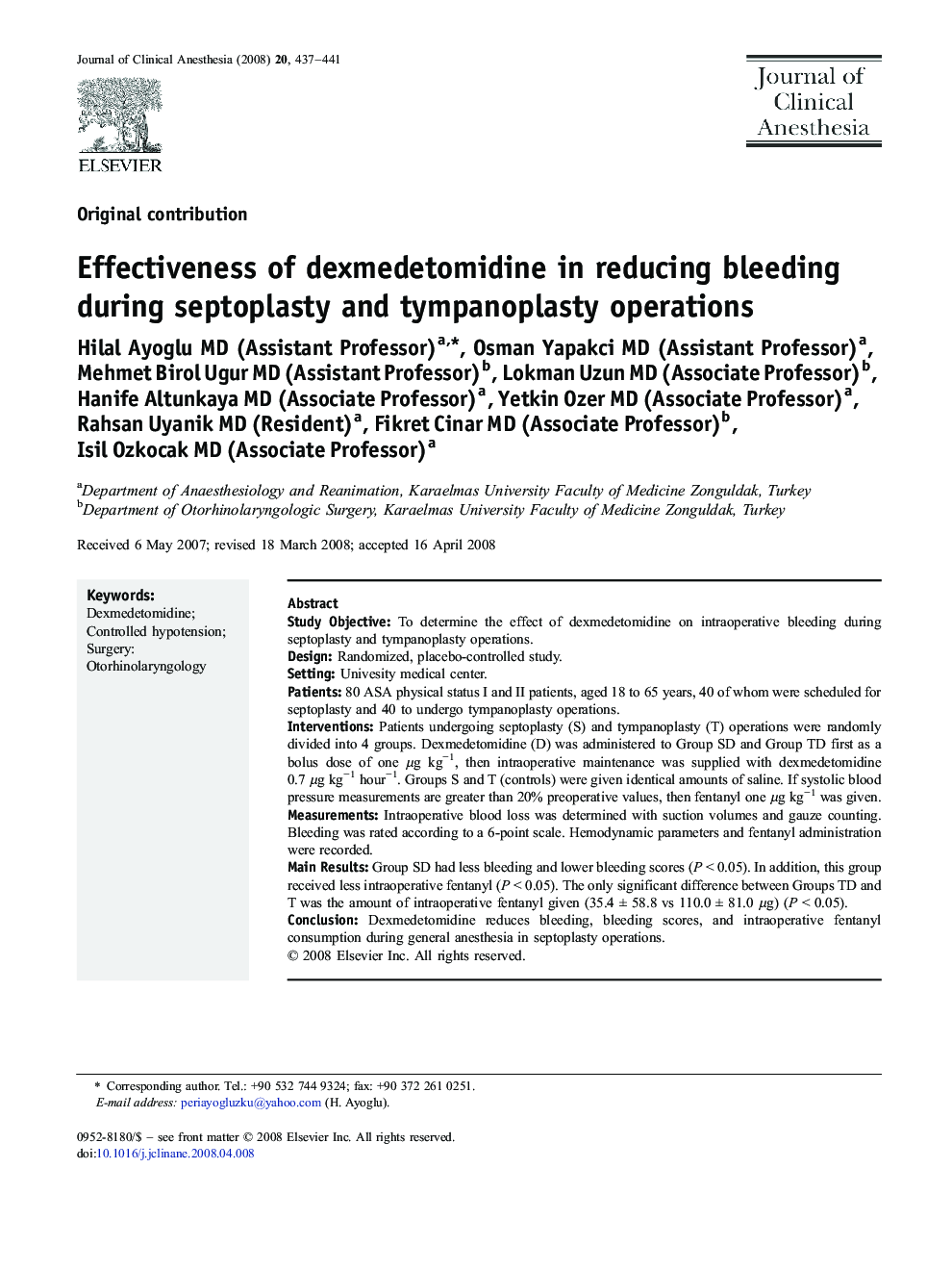| Article ID | Journal | Published Year | Pages | File Type |
|---|---|---|---|---|
| 2764143 | Journal of Clinical Anesthesia | 2008 | 5 Pages |
Study ObjectiveTo determine the effect of dexmedetomidine on intraoperative bleeding during septoplasty and tympanoplasty operations.DesignRandomized, placebo-controlled study.SettingUnivesity medical center.Patients80 ASA physical status I and II patients, aged 18 to 65 years, 40 of whom were scheduled for septoplasty and 40 to undergo tympanoplasty operations.InterventionsPatients undergoing septoplasty (S) and tympanoplasty (T) operations were randomly divided into 4 groups. Dexmedetomidine (D) was administered to Group SD and Group TD first as a bolus dose of one μg kg−1, then intraoperative maintenance was supplied with dexmedetomidine 0.7 μg kg−1 hour−1. Groups S and T (controls) were given identical amounts of saline. If systolic blood pressure measurements are greater than 20% preoperative values, then fentanyl one μg kg−1 was given.MeasurementsIntraoperative blood loss was determined with suction volumes and gauze counting. Bleeding was rated according to a 6-point scale. Hemodynamic parameters and fentanyl administration were recorded.Main ResultsGroup SD had less bleeding and lower bleeding scores (P < 0.05). In addition, this group received less intraoperative fentanyl (P < 0.05). The only significant difference between Groups TD and T was the amount of intraoperative fentanyl given (35.4 ± 58.8 vs 110.0 ± 81.0 μg) (P < 0.05).ConclusionDexmedetomidine reduces bleeding, bleeding scores, and intraoperative fentanyl consumption during general anesthesia in septoplasty operations.
